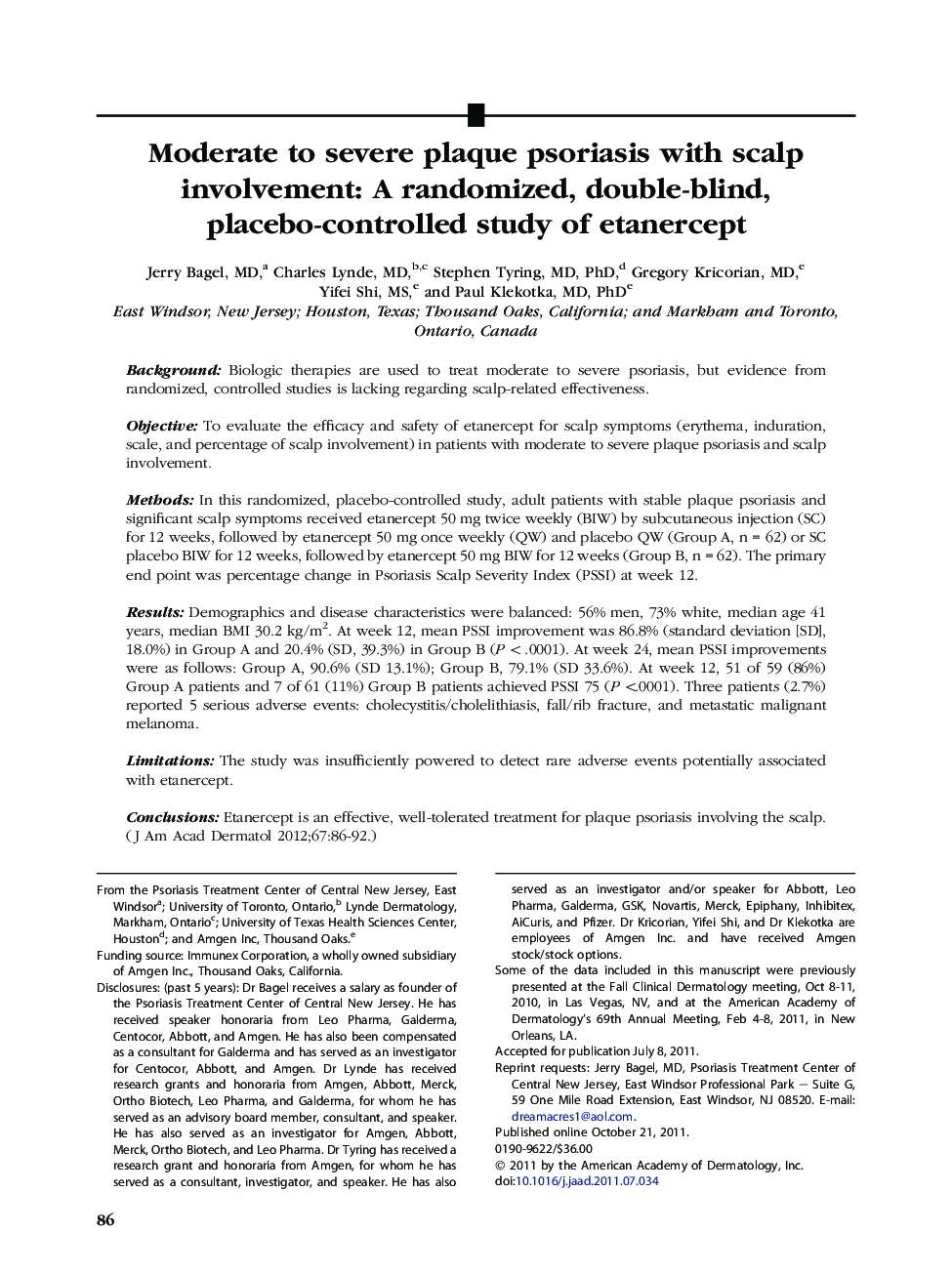| Article ID | Journal | Published Year | Pages | File Type |
|---|---|---|---|---|
| 3206095 | Journal of the American Academy of Dermatology | 2012 | 7 Pages |
BackgroundBiologic therapies are used to treat moderate to severe psoriasis, but evidence from randomized, controlled studies is lacking regarding scalp-related effectiveness.ObjectiveTo evaluate the efficacy and safety of etanercept for scalp symptoms (erythema, induration, scale, and percentage of scalp involvement) in patients with moderate to severe plaque psoriasis and scalp involvement.MethodsIn this randomized, placebo-controlled study, adult patients with stable plaque psoriasis and significant scalp symptoms received etanercept 50 mg twice weekly (BIW) by subcutaneous injection (SC) for 12 weeks, followed by etanercept 50 mg once weekly (QW) and placebo QW (Group A, n = 62) or SC placebo BIW for 12 weeks, followed by etanercept 50 mg BIW for 12 weeks (Group B, n = 62). The primary end point was percentage change in Psoriasis Scalp Severity Index (PSSI) at week 12.ResultsDemographics and disease characteristics were balanced: 56% men, 73% white, median age 41 years, median BMI 30.2 kg/m2. At week 12, mean PSSI improvement was 86.8% (standard deviation [SD], 18.0%) in Group A and 20.4% (SD, 39.3%) in Group B (P < .0001). At week 24, mean PSSI improvements were as follows: Group A, 90.6% (SD 13.1%); Group B, 79.1% (SD 33.6%). At week 12, 51 of 59 (86%) Group A patients and 7 of 61 (11%) Group B patients achieved PSSI 75 (P <.0001). Three patients (2.7%) reported 5 serious adverse events: cholecystitis/cholelithiasis, fall/rib fracture, and metastatic malignant melanoma.LimitationsThe study was insufficiently powered to detect rare adverse events potentially associated with etanercept.ConclusionsEtanercept is an effective, well-tolerated treatment for plaque psoriasis involving the scalp.
